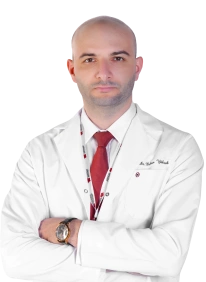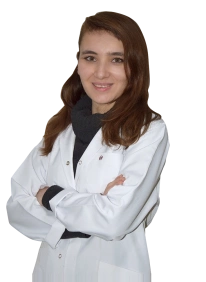Psychiatry
Psychiatry is a medical specialty that examines human psychology and diagnoses and treats mental illnesses. In psychiatry clinics, clinical psychologists and child-adult psychiatrists provide services to the patients.
The changes in the body and external environment caused by psychiatric diseases may vary for each disease. The causes of diseases are genetic predisposition, poor physical health, social environment and upbringing.
The diagnosis of psychiatric diseases is made primarily by psychiatric interview and by using laboratory tests and imaging methods to support the diagnosis. In psychiatry, treatment is carried out using drug therapy and psychotherapy methods.
In our Psychiatry Clinic, the individuals who apply for advice and the patients who seek help due to their psychological problems are evaluated by a contemporary psychiatric approach in which the human is considered as a psychosocial entity.
Psychiatric Center
International diagnosis and classification methods are followed in the evaluation of outpatients in our clinic. Extensive laboratory facilities available in our hospital, imaging methods, especially MRI, and EEG are used duly in diagnosing, planning their treatment and monitoring our patients evaluated in the Psychiatry Clinic.When necessary, specific psychiatric scales are applied to ensure correct diagnosis and to increase the benefit of patients from their treatment. When needed; specific psychiatric scales are performed in order to ensure the correct diagnosis and to increase the benefits of treatment.
Interest Areas of Psychiatry Department
- Depression
- Panic disorder
- Personality disorders
- Sexual dysfunctions
- Family problems
- Obsessive compulsive disorder
- Schizophrenia
- Bipolar disorders
- Eating disorders
- Somatoform disorders
- Anxiety disorders
- Impulse control disorders
- Exam stress
- Social phobia
- Adaptation problems
- Tic disorders
- Child and family counseling (bed-wetting, thumb sucking, sibling jealousy…)
- Adolescent counseling (exam anxiety, school failure, vocational guidance…)
Methods Used in Psychiatric Center
- Individual psychotherapy
- Psychological assessments
- Personality tests, intelligence tests and developmental tests for children (MMPI, TAT, WISC-R, AGTE)
- Game therapy
Treatment Process of Psychiatric Diseases
Treating psychiatric diseases ensures the protection and improvement of people's mental health. To start the treatment, the patient's complaints are first listened to, and if necessary, diagnostic tests such as blood tests and MRI are used. Treatment is started according to the result. If the person is open to treatment and thinks that there is a problem with himself/herself which he/she wants to fix it, then the treatment time shortens.
FREQUENTLY ASKED QUESTIONS
Who is a Psychiatrist? What are their responsibilities?
Physicians who have received 6 years of medical school education and 4 years of residency in the field of psychiatry are called psychiatrists. Psychiatrists work on disorders in mental, emotional and behavioral skills. Examination and follow-up of patients, diagnosis and treatment of mood disorders and addictions are among the duties of psychiatrists.
What is the Difference Between Psychiatrist and Psychologist?
If we were to define these two occupational groups, we can say that: A psychiatrist is a specialist doctor who diagnoses and treats mental and nervous diseases. A psychologist is a person who systematically examines the mind and behavior of an individual based on scientific methods. Psychiatry is a branch of medicine. Psychology is a department in the Arts and Sciences Faculty of universities. In order to become a psychiatrist, it is necessary to take residency training after graduating from medical school, while it is necessary to have a bachelor's degree in order to become a psychologist. However, only a bachelor's degree is not enough to perform therapy or to specialize in a field, it is necessary to complete a master's degree in the desired field. While psychiatrists have the authority to diagnose, prescribe medication and therapy, only clinical psychologists working in a hospitals and clinical settings can diagnose and treat through therapy. Psychologists refer the person to a psychiatrist if drug treatment is deemed necessary; because only psychiatrists can prescribe psychiatric drugs.
What is Blunted Affect?
Affect is the ability to give emotional reactions to external or internal stimuli and to notice these reactions from the outside. Blunted affect or emotional blunt means severe reduction in the projection of emotions and limited projection. It can occur without any disease, or it can be one of the symptoms of some diseases such as schizophrenia.
What is Anxiety Disorder?
Anxiety disorder is a psychological disorder. It is quite normal to be worried and anxious about some events and situations in daily life. However, if these feelings continue for a long time after, it can be considered to be a disease.
Since the person suffering from anxiety disorder has difficulty in controlling their emotions, their social lives begin to be negatively affected over time. For this reason, it is necessary to consult a specialist and get treatment without wasting much time.
Types of anxiety disorder:
- Common anxiety disorder
- Panic disorder
- Specific phobias
- Agoraphobia
- Social anxiety disorder
- Breakup anxiety disorder
What Are the Symptoms of Anxiety?
The symptoms of anxiety can be listed as follows:
- Sudden intense anxiety and fear
- Shortness of breath, dry mouth
- Feeling like something bad is going to happen
- Acceleration of heartbeat
- Excessive sweating
- Inability to focus
- Insomnia
- Stomach disorder
What is Panic Attack? What are the symptoms?
Everyone can experience anxiety or panic at some times and in situations. It is a natural response to a particular danger. Intense fear and anxiety that is felt suddenly and regularly without any danger or reason indicates panic attack disorder. Panic attacks are a variant of anxiety disorder. During the attack, symptoms such as chest pain, sweat discharge, and rapid heartbeat can be seen.
Panic disorder, on the other hand, is the intense anxiety that occurs in the person due to sudden and recurrent panic attacks, and thus the inability to continue life properly.
What is Depression? What are the symptoms?
Depression, is a mood disorder with a prolonged state of sadness and unhappiness. In other words, it is major depressive disorder or clinical depression. A short-term feeling of malaise is not depression. Depression leads to a constant state of sadness and a lack of enjoyment in pleasant situations.
Behaviors, feelings and thoughts of the depressed person are also negatively affected by this situation. Even doing normal daily activities can be difficult for the person and sometimes it can feel like life is not worth living. Depression, which usually occurs in the 20s, is more common in women than men. Depression is a problem that can be treated with medication, therapy, or both.
Here are the symptoms of depression:
- Feeling sad and worthless all the time
- Loss of interest and pleasure in daily activities
- Overeating or loss of appetite
- Sleep disorders
- Constant fatigue
- Slowness in speech and movements
- Loss of concentration, difficulty making decisions
- Suicidal tendencies
What is Social Phobia?
Social phobia, which is a type of anxiety disorder, causes difficulty in communicating with other people and avoiding social environments for fear of being disliked and excluded by the society. It is common in society. Social phobia can cause many problems by negatively affecting daily life.
Social phobia is mostly genetically based. If there are people who suffer from social phobia in the family, it can also be seen in other individuals. Medication may be necessary in addition to psychotherapy.
What is Obsessive Compulsive Disorder?
Obsessive and compulsive disorder is the acquisition of behaviors called compulsions, in which the person is trapped in a repetitive cycle of thoughts and behaviors. These compulsions turn into a kind of ritual over time. Rituals aim to prevent or remove obsessive thoughts, and in this way, to get rid of anxiety. These can stop anxiety for a while, but when obsessive thoughts come to mind again, the same process will occur again. Individuals with OCD cannot heal on their own, they must receive professional support and treatment.
OCD can be caused by overactivity in the brain, or it can be caused by a traumatic event in the past of the individual.
What is Schizophrenia? What are the symptoms?
Schizophrenia is a psychiatric disease that causes the individual to lose their perception of reality, makes it difficult for the brain to think normally, and therefore prevents it from keeping its emotions under control with its behaviors. When schizophrenia starts to show symptoms, it is not possible for the person to be aware of his/her own situation and make a rational decision. The disease often progresses slowly, and with early diagnosis and treatment, it can be kept under control before serious complications develop.
Although schizophrenia is associated with aggression in the media, most patients are not violent. However, the fears and paranoia felt by the patients, distorted thoughts and hallucinations can make it difficult to control anger.
In the course of the disease, there is an increase in the symptoms in some periods and a decrease in some periods. Among other psychiatric disorders, schizophrenia is one of the diseases that most negatively affect social and professional life. The disease is chronic and requires lifelong treatment, but the majority of symptoms are controlled when medications are used regularly.
Symptoms of schizophrenia include:
- Believing in unreal events
- Having hallucinations and delusions
- Disorganized thoughts and speech
- Irregular motor movements and behaviors
- Blunted affect
You can make a psychiatry appointment by calling our call center at 0850 222 04 94 for more information and to learn about psychiatry examination prices.










